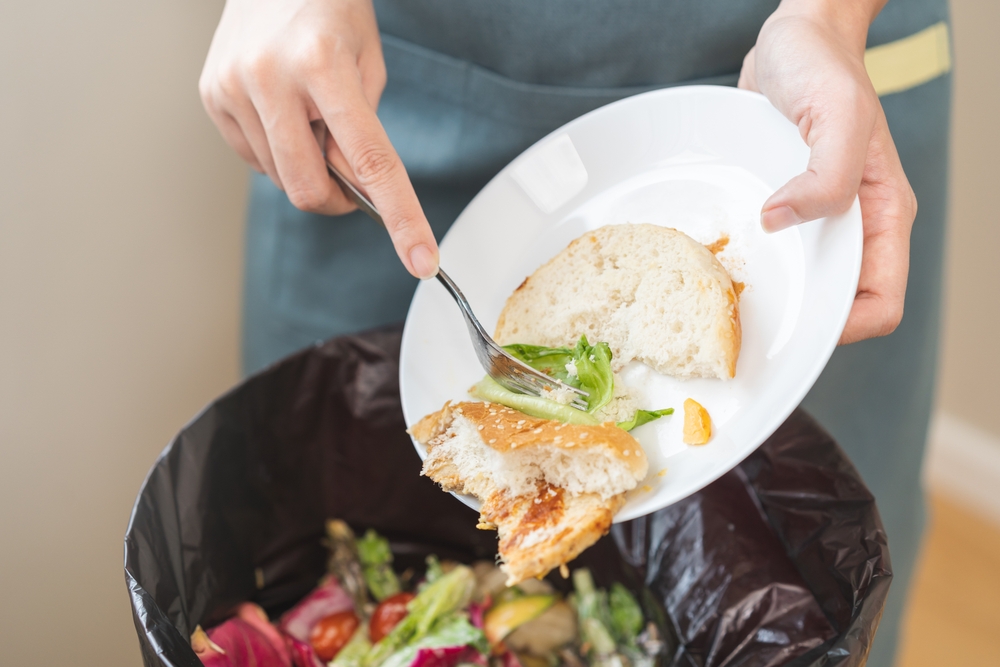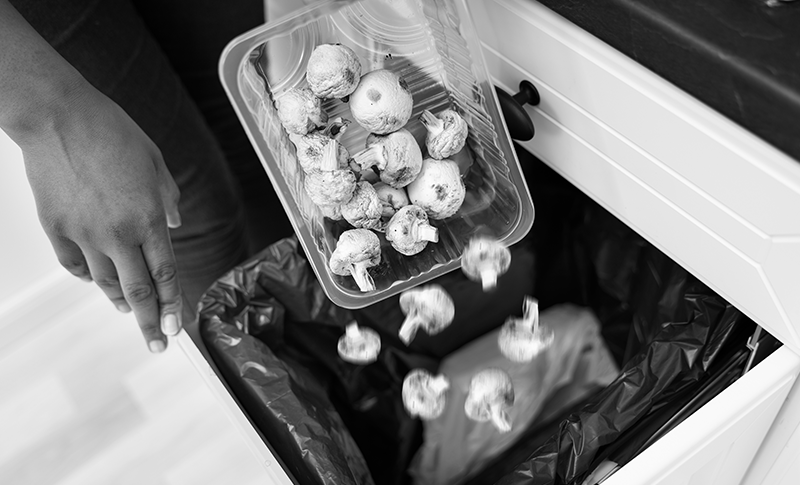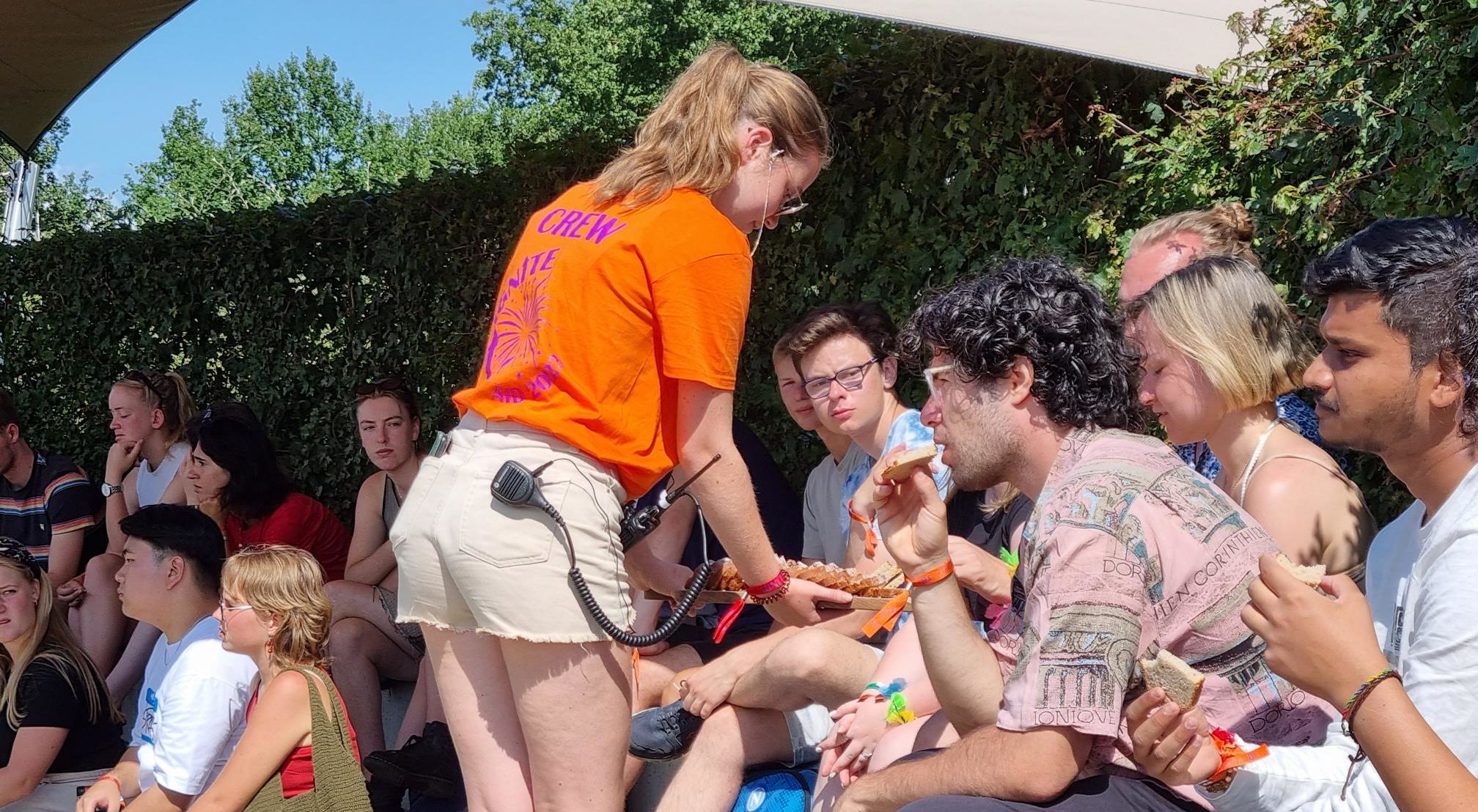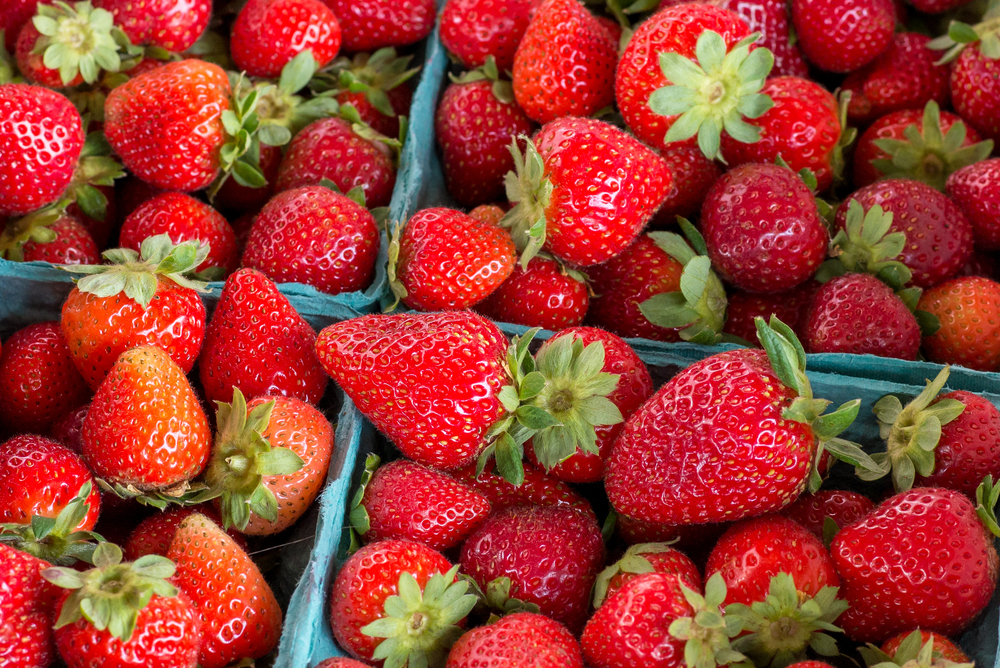This week is Waste-Free Week, which aims to inspire consumers to waste less food. Dutch people throw away 848 million kilograms of food at home, of which around 60 million kilograms is because the use-by date has passed. ‘It helps to look, smell and taste’, says food waste professor Erica van Herpen (Marketing and Consumer Behavior).
In 2023, the Dutch threw away less food than in the previous year, according to the latest Monitor Voedselverspilling (Food Waste Monitor) produced by WUR researchers on behalf of the Ministry of Agriculture, Fisheries, Food Security and Nature. The largest share of food waste comes from processing and manufacturing, but households also waste more than a third (see figure). Waste-Free Week, an initiative of the foundation Samen Tegen Voedselverspilling (Together Against Food Waste), to which WUR also contributes, aims to reduce this type of food waste with a campaign focusing on use-by dates.
Net food waste in Dutch households was the same as a year earlier: 848 million kilograms on an annual basis. According to Van Herpen, newly appointed professor of Resource Smart Consumer Behavior, this can be changed. ‘Food waste by households has been declining for a number of years, but the decline is slowly flattening out. There are still many interventions and ways to reduce food waste in households, and that is necessary, because it is still a lot.’
Uncertainties
In her inaugural speech at the end of August, Van Herpen spoke about the so-called ‘uncertainties’ within households that lead to them wasting a lot of food. ‘Families with children, and varying patterns of who eats when, benefit from more flexibility in their approach to food. Think of leftover days, regularly checking what you have in stock and storing what you have too much of in a smart way, for example by freezing it.’
‘Moreover, the current rise in food prices may also be an incentive to waste less’, Van Herpen speculates. ‘Since the 1950s, we have been producing a surplus of food. This made it cheaper and waste less important. That is changing now. We use a lot of resources for our food and we are now facing geopolitical trade challenges and a climate crisis that increases the risk of crop failures.’ In addition, food waste is also a moral issue: we waste large quantities of food, while at the same time, many people are suffering from hunger.
Waste-Free Week
Waste-Free Week focuses on the use-by date, the THT date. Van Herpen: ‘There is a difference between ‘use by’ and ‘best before’. The former poses food safety risks if you use it after this date. The latter means that the product is of top quality until that date, but you can usually still eat it afterwards. You can tell by looking, smelling and tasting it.’
Last Thursday, outgoing Minister of Agriculture Femke Wiersma sent the Monitor Voedselverspilling to the House of Representatives and wrote in her attached letter: ‘We expect farmers to use nutrients efficiently, while at home and in the catering industry, for example, we throw sustainably produced food into the bin en masse. That really has to and could be changed.’ She has pinned her hopes on Waste-Free Week.
In fact, as part of policy-supporting research, WUR conducts research through Wageningen Food & Biobased Research into tools that can be used to prevent losses during or after harvesting, so that this part of food waste can also be reduced.
Waste in Wageningen
Leftover dinner, fermentation workshop and a ‘dinner & documentary’ evening. This week in Wageningen, there are activities, meals and workshops to inspire people to waste less food. The full local programme can be found in the agenda of Stichting Nu De Toekomst.
Translated with help of DeepL.com

 In 2023, Dutch people threw away 2,271 million kilograms of food. Of that amount, 848 million kilograms came from households. Photo Shutterstock
In 2023, Dutch people threw away 2,271 million kilograms of food. Of that amount, 848 million kilograms came from households. Photo Shutterstock 

